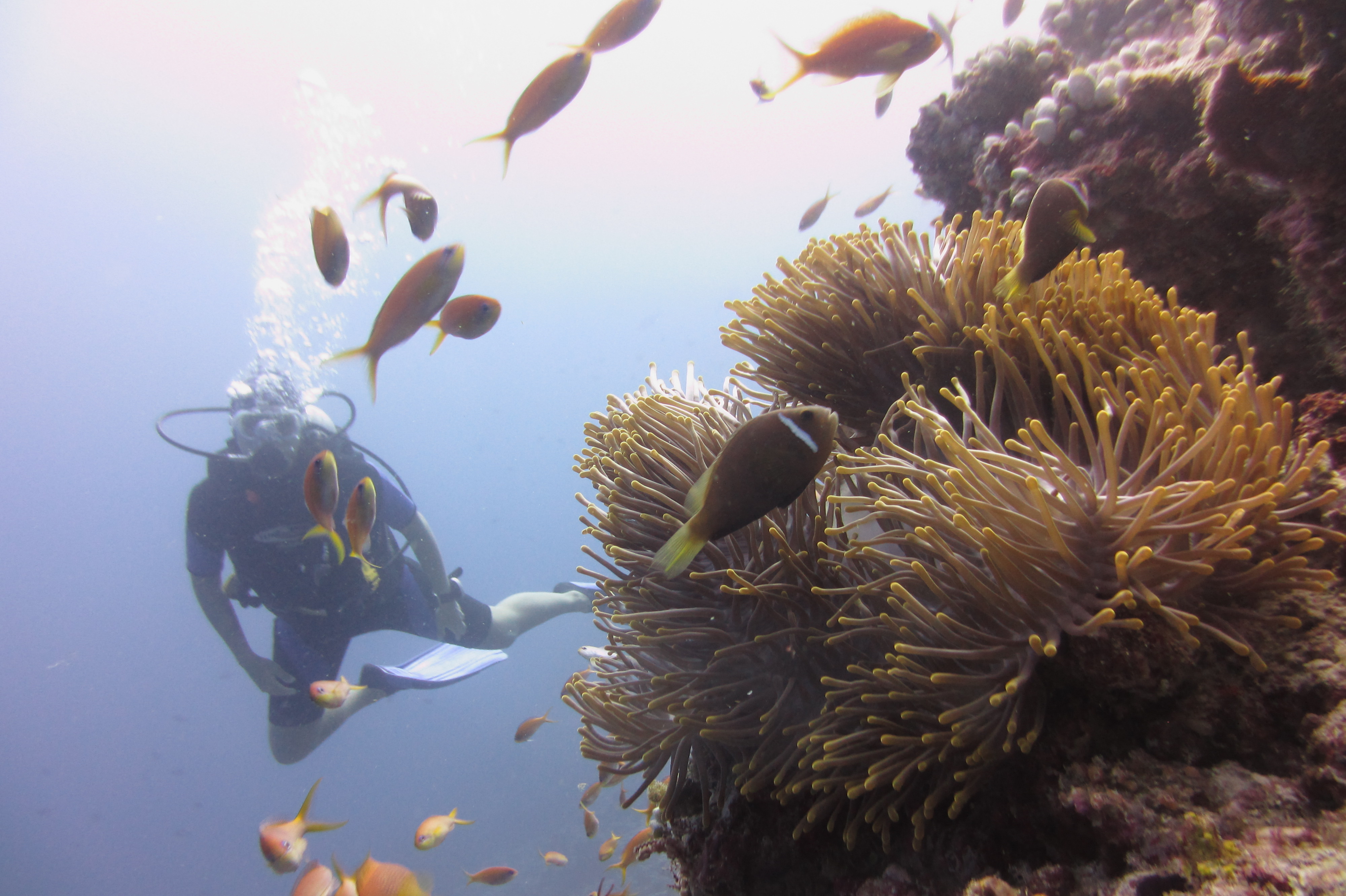Diving deep into the mysteries of the ocean takes on a new meaning with the practice of free diving. Far beyond the realms of traditional scuba diving, free diving is an art that allows individuals to explore underwater realms with just a single breath. In this article, we will unravel the essence of free diving, understand why it captivates enthusiasts worldwide, and explore three of the best free diving spots across the globe, with Nusa Lembongan in Bali, Indonesia, taking the lead.
A Brief Explanation of Free Diving
Freediving, a practice dating back to ancient times, involves submerging oneself underwater without breathing equipment. Humans have engaged in breath-holding dives for various purposes, from fishing to modern-day leisure and competition. Uniquely adapted to aquatic environments, humans exhibit a ‘dive reflex’ where the heart rate slows upon submersion, conserving oxygen for extended breath-holding. This reflex recurs at around 25 meters, further enhancing underwater endurance. Freediving enthusiasts experience euphoria during the descent, reaching depths where they can freefall, entering a trance-like state.
The ascent poses psychological challenges as divers resist the urge to breathe, encountering stomach contractions and, at times, hallucinations. Beyond depth competitions, freediving encompasses recreational pursuits, applied activities like hunting, and competitive endeavors where athletes push the boundaries of human capability. Whether a form of meditation, scientific exploration, or competitive sport, freediving offers a unique connection to the underwater world.
Three Best Free Diving Spots in the World
Nusa Lembongan, Bali, Indonesia
Ranked among the best freediving sites globally, Nusa Lembongan in Bali, Indonesia, offers a haven for enthusiasts. The clear waters make it easy to see the stunning underwater scenery, including colorful coral reefs and various sea creatures. The ocean floor’s interesting features, like caves and canyons, add extra excitement for those who want a memorable freediving experience. If you’re into freediving, exploring the waters of Nusa Lembongan is a must. Discover the beauty beneath the surface as you enjoy the fantastic underwater landscapes. It’s a top destination for anyone interested in experiencing free diving in Bali, offering a chance to explore the ocean’s wonders in a clear and inviting environment.
Christ of the Abyss statue, Italian Riviera, Portofino
The Christ of the Abyss statue, submerged in the waters of Portofino’s Protected Marine Area in the Italian Riviera, stands as a unique and accessible diving attraction. Paying tribute to Dario Gonzatti, the first Italian scuba diver who tragically lost his life in 1947, the statue has become a symbol for all lives claimed by the sea. Placed at a depth of about 18 meters, it serves as a reference point for divers and represents peace with its open hands directed toward the sky. Created by sculptor Guido Galletti in bronze, the 2.5-meter-tall statue was melted from medals, naval artifacts, and bells. Restored in 2003 and returned to the water in 2005, it remains a poignant memorial. Visitors can also witness similar replicas worldwide, creating a global connection to the solemn commemoration of lives lost at sea.
Dean’s Blue Hole, Long Islands, Bahamas
Dean’s Blue Hole in Long Island, Bahamas, is a magnet for thrill-seekers and record-breakers. Plunging to a depth of 202 meters, it holds the title of the world’s deepest blue hole. Renowned freediver William Trubridge has set records and hosts competitions in its deep, warm, and calm waters. The rocky pathway leads adventurers to a breathtaking 663 feet abyss, enclosed by a natural rock amphitheater and bordered by a turquoise lagoon and white beach. Every year, the Vertical Blue Free Diving Competition draws participants and spectators worldwide. Dean’s Blue Hole, connected to the Atlantic, offers exceptional visibility up to 30 meters. Its formation remains a geological wonder, possibly shaped by underwater erosion. Beyond its depth, the blue hole teems with marine life, from snapperfish to seahorses, creating an enchanting underwater spectacle for divers and snorkelers alike.
The Benefits of Freediving
Free diving, beyond its adventure, offers a range of health benefits that make it more than just an underwater pursuit. Here are five compelling reasons why freediving is good for your health:
Enhanced Respiratory System
Free diving puts your respiratory system to work, strengthening your lung capacity and efficiency. The practice involves holding your breath, which, over time, improves your breath-holding capabilities. This increased lung capacity can lead to better overall respiratory health.
Improved Cardiovascular Fitness
Dive into the world of free diving, and you’ll find yourself swimming against the resistance of the water. This resistance becomes a natural workout for your heart and cardiovascular system. Regular free diving can contribute to improved circulation and a healthier heart.
Stress Reduction and Relaxation
Submerging into the calm depths of the water during a free dive induces a sense of peace and relaxation. The focus on breath control and the serene underwater environment work together to reduce stress levels. Many practitioners describe the experience as a form of meditation, promoting mental well-being.
Increased Flexibility and Strength
Free diving engages various muscle groups as you navigate underwater. The constant movement and resistance of the water act as a low-impact exercise, promoting muscle flexibility and strength. Over time, this can contribute to improved overall physical fitness.
Mind-Body Connection
Free diving demands a strong connection between the mind and body. The need for mental focus, control, and discipline during a dive fosters a profound mind-body connection. This heightened awareness and mindfulness can extend beyond the water, positively impacting your daily life.
Whether you’re exploring the depths for recreation or competition, the benefits of free diving extend far beyond the surface.
Safety Tips for Free Diving
- Never Dive Alone: Free diving should always be a shared experience. Having a buddy ensures mutual safety and assistance in case of emergencies.
- Proper Training: Enroll in a certified free diving course to learn essential techniques, safety protocols, and breathing exercises from experienced instructors.
- Know Your Limits: Understand and respect your personal limits. Avoid pushing yourself too hard, especially in terms of depth and breath-holding durations.
- Stay Hydrated: Dehydration can affect your ability to free dive safely. Ensure proper hydration before and after each session to maintain overall health.
- Equalization Techniques: Master equalization methods to prevent barotrauma and ear injuries. Properly equalizing helps manage pressure changes during descents and ascents.
Free diving transcends the conventional boundaries of underwater exploration, offering a unique and intimate connection with the ocean. From diving in Nusa Lembongan to Deans’ Blue Hole and other renowned dive spots, enthusiasts are drawn to the simplicity and freedom of this underwater discipline. However, the beauty of freediving comes with responsibility, and adhering to safety tips ensures a secure and enjoyable experience. So, whether you’re a seasoned free diver or a beginner eager to explore the depths, let the ocean be your playground and adventure on a journey that celebrates the art and simplicity of free diving.







